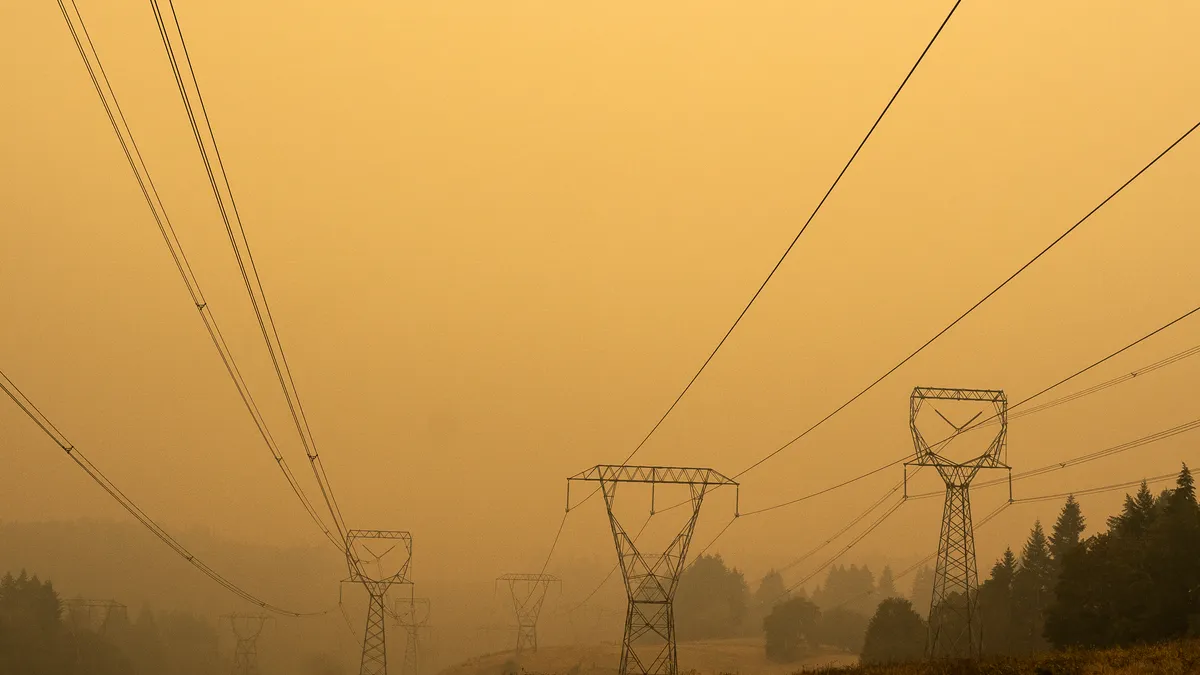Dive Brief:
-
With heatwaves and wildfires raging in the West, the need for reliability is more critical than ever, and should spur stakeholders to move quickly to advance an organized market in the region, according to the Federal Energy Regulatory Commission's Democratic commissioners.
-
The prospect of creating a Western regional transmission organization (RTO) was raised "again and again," during FERC's technical conference on resource adequacy in the West, said Commissioner Allison Clements during the commission's monthly meeting on Thursday. "While it won't help us get through this summer, I agree that a Western RTO — designed by Westerners for Westerners — goes a long way toward addressing the West's needs in the decades to come," she said. Chair Richard Glick, who in June similarly called for the West to "finish the job" of creating an RTO, echoed those sentiments to reporters after the meeting.
-
Their comments follow a call from a coalition of previous FERC commissioners and chairs to expand RTOs across the West and Southeast, the only two regions in the U.S., excluding California, that remain outside an organized power market.
Dive Insight:
California's grid is managed by the California Independent System Operator, but the rest of the West remains unstructured, with electric customers largely beholden to traditionally-regulated, vertically-integrated monopoly utilities. Proponents of RTO expansion say organizing the West and Southeast can accelerate the energy transition and create more market transparency.
Though some ex-FERC commissioners and chairs urged the commission to take this job on unilaterally, Glick and Clements indicated that such a policy should come from Western stakeholders themselves. But while the region has made some progress, such as the expansion of the Southwest Power Pool to create a Western Energy Imbalance Services market, Glick said the region needs to move faster.
"I believe there needs to be an RTO in the West, I think the time has come for it," said Glick. He added that "this commission has been very deferential and will continue to be deferential to the region. But at the same time, I think those discussions need to move forward ... instead of working incrementally."
The impact of climate change on the region should accelerate those discussions, Glick and Clements said.
"The effects of climate change on the electricity system requires a recognition by all stakeholders of the magnitude of the challenge. It also requires a willingness to open our thinking to collaborative, bold steps going forward," Clements said.
"We know from public reports that I think more than 4,000 MW of transmission capacity from the north to the south — from the Northwest into California, for instance — was taken out for a time period because of one of the major wildfires out there," said Glick. "And we know it's not going to get any any better. ... It's actually going to get worse."
Expanding RTOs is not without controversy: Former FERC Commissioner Bernard McNamee has said he does not believe the RTO model is the best way to ensure resource adequacy, pointing out that blackouts in California and Texas happened under organized market structures. Such issues have "demonstrated that the RTO model has serious problems with ensuring reliability and affordability — we don't need to export their failures to other parts of the country," he said in response to other former commissioners' request for FERC to tackle RTO expansion. Former FERC Chair Tony Clark and former energy adviser to President Donald Trump Mike McKenna have also questioned the benefits of organized markets.
Consumer advocates and conservative groups earlier this month requested the federal government conduct a comprehensive cost analysis of current RTOs, in order for some groups to assess where they stand on organized markets and for others to better bolster arguments touting their benefits.















